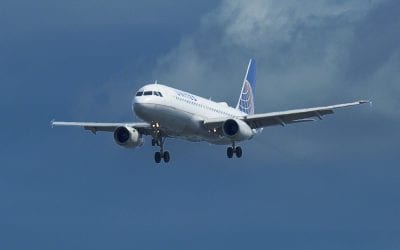Flash sales, twitter sales, geo-located promotions, computer coupons, computer group discounts, facebook groups, private sales, online travel agents, global distribution systems, airline reservation systems, direct connect, passenger value scoring and travel agents are all ways and systems to purchase travel. Chaos is growing in our pricing. Nothing is certain. Is a deal a deal?
Is the airline system different? As the airlines make the total cost of traveling more and more difficult to decipher, should there be a place that consumers can calculate the total cost of travel and compare those costs across airlines? Or, will pandemonium reign?
One of the obvious trends to anyone studying pricing is that the old world of static pricing is going the way of the tin-lizzy and Selectric typewriter. Where does this leave consumers?
The more computerized pricing systems know about us — our purchasing habits, our location, the time of day, flight preferences, frequent flier records — the more specific and customized advertising offers become.
Airlines are looking at personalizing their airfares and travel packages based on the type of traveler you might be. Do you normally purchase tickets at the last minute? Are you a business-class kind of person? Do you look for deals? Are you a Priceline customer? What kind of hotel room do you select? How many miles do you fly each year? What is your rank in the airline frequent flier program? Are you a member of competing frequent flier or frequent stayer programs.
When all of these factors are put together, the airline (or hotel) wants to serve you a price that you will be willing to pay, based on your history. You will not get the cheapest price, because you normally don’t want that. You will not get an offer of connecting flights that might save a hundred bucks, because you don’t book flights with connections. Your travel package will not include an inexpensive hotel since your preferences based on past purchases indicate that you rarely stay in Motel 6 or Days Inn.
Your price for a weekend package will reflect what the airlines or travel organizers expect you to pay. They will make your pricing decision for you based on your profile, your frequent flier status and your past behavior.
Why serve bargains to customers who have no interest in them? Why not squeeze as much money from each passenger as can be extracted? Why offer choice when computer models indicate there is little chance this particular passenger will buy the bargain?
On the other hand, there are bargain hounds.
Some frequent passengers scour the Web for the best deal. For these passengers, the airlines would want to engage that passenger in a twitter flash sale group. The airline might encourage their bargain passengers to join their facebook page to get last-minute bargains. Airline tickets might be bundled with entertainment chits to clubs or shows at their destinations. Perhaps, giving up frequent flier miles would result in even a better price. For sure, business travelers without twitter savvy will not see the cheapest airfares being offered.
This is the ideal world for airlines — a world where they control the prices that passengers see. A world where there is as little competition as possible.
For consumers on the other hand, this kind of a world is an uncertain circle of hell. After all, each passengers profile has been compiled through a system of free choice of products. It’s not the same when the airline or hotel is making decisions for you. To have to purchase airline tickets with pricing based on the whim of airline revenue executives and marketers would be the ultimate abandonment of a free competitive market.
However, the kinds of marketing based on previous purchasing conduct is coming. Some say it is not all bad. What if these airline-generated behavioral prices were blended with a site where all prices could be easily compared (including airline fees)? Would that make it fair? Would any ConsumerTraveler readers want to allow the airlines to choose their flight? Or is competition and a search for the lowest prices still the American way?

Charlie Leocha is the President of Travelers United. He has been working in Washington, DC, for the past 14 years with Congress, the Department of Transportation, and industry stakeholders on travel issues. He was the first consumer representative to the Advisory Committee for Aviation Consumer Protections appointed by the Secretary of Transportation from 2012 through 2018.




